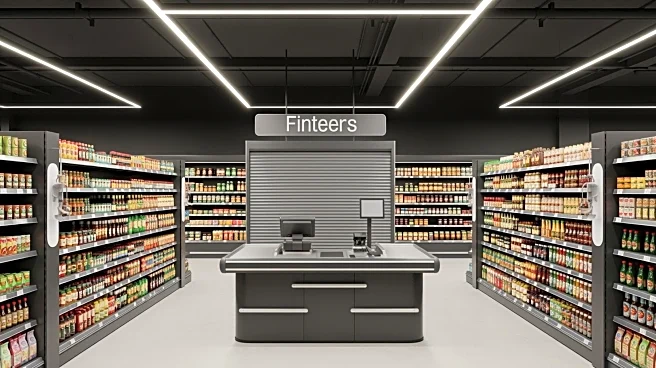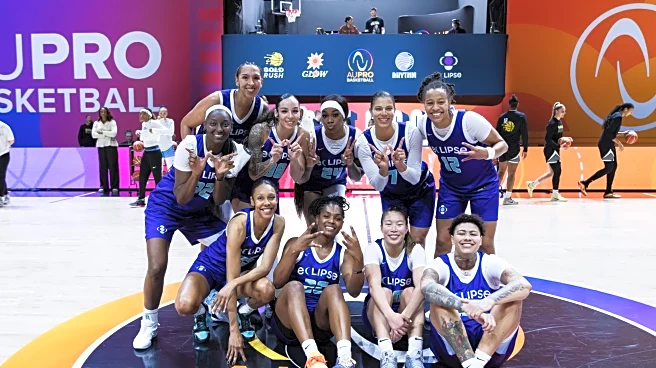What's Happening?
The Fresh Market, a grocery chain based in North Carolina, is closing its Naperville, Illinois location less than a year after its opening. The store, located at 204 S. Route 59 in the Westridge Court
shopping center, is shutting down as part of the company's strategic evaluation of its store portfolio. The decision comes despite the store's recent opening, which followed nearly two years of planning and construction. The Fresh Market, known for its specialty grocery items, is also closing a location in Framingham, Massachusetts, but plans to open four new stores across the country, including one in Chicago's Old Town neighborhood. The closure has disappointed some local customers who appreciated the store's unique offerings, while others found the prices too high compared to other local options.
Why It's Important?
The closure of The Fresh Market in Naperville highlights the challenges faced by retail businesses in maintaining profitability and strategic alignment in competitive markets. For local consumers, the closure means fewer options for specialty grocery items, potentially impacting shopping habits and local economic activity. The decision also reflects broader trends in the retail industry, where companies are increasingly focusing on optimizing their store locations to align with strategic growth areas. The Fresh Market's expansion plans in other parts of Chicago suggest a continued investment in the region, indicating confidence in the area's market potential despite the Naperville closure.
What's Next?
The Fresh Market's closure in Naperville leaves a vacancy in the Westridge Court shopping center, prompting the property owner, Brixmor Property Group, to seek new tenants. The group is actively reaching out to other grocery stores and potential tenants to fill the space. Meanwhile, The Fresh Market's expansion into other Chicago neighborhoods is expected to proceed, with new store openings planned for later this year and early next year. The company's strategic focus on growth areas suggests a continued evaluation of its store portfolio to ensure alignment with market demands and company goals.










